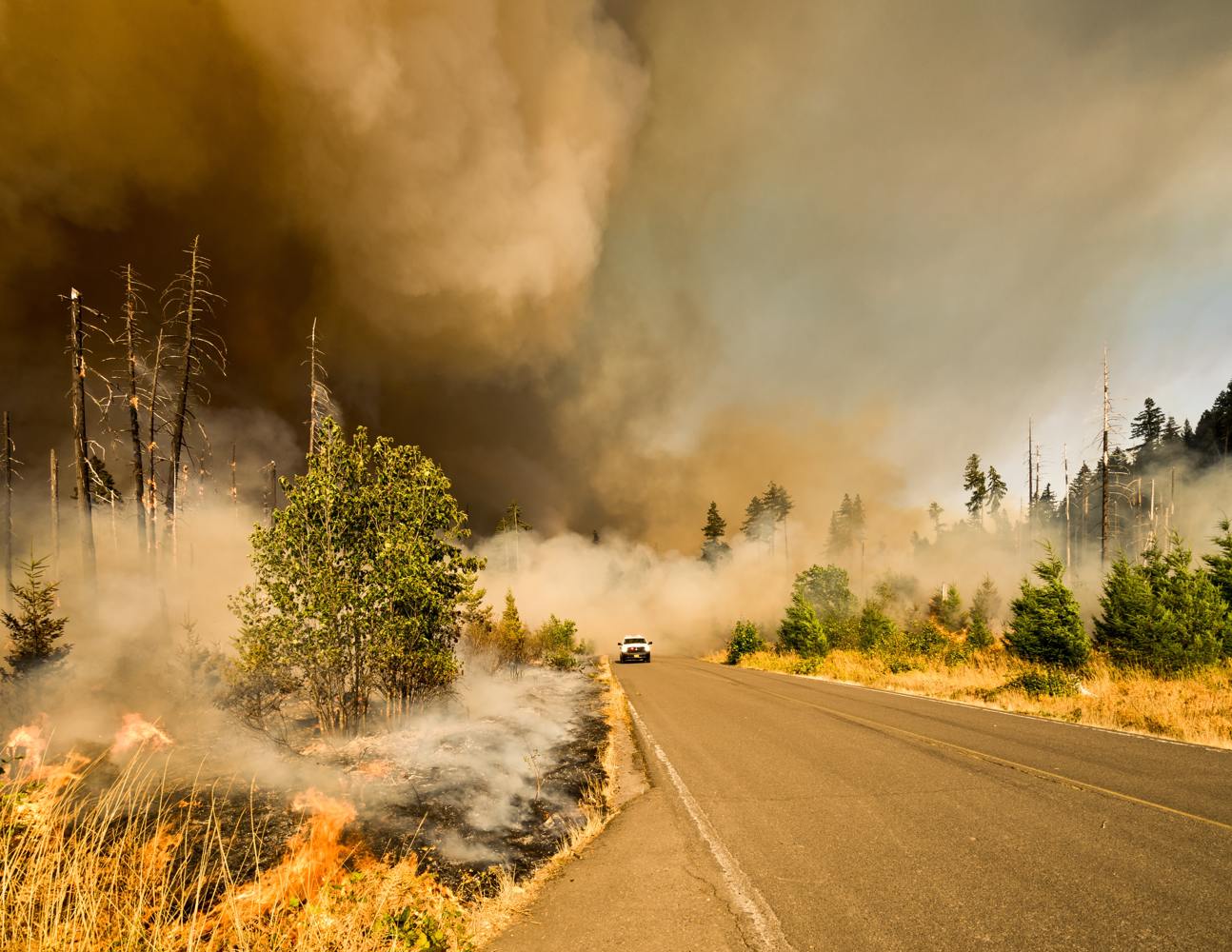There are various health-related issues that can arise due to wildfires.
With the changing season comes new potential dangers to be aware of. While many of us are excited for the camping season to return and warmer hiking weather, we need to be extra careful and mindful of wildfires in Colorado. Unfortunately, like allergy season, wildfire season is expected to last longer this year.
According to The Colorado Division for Fire Prevention and Control, the high temperatures and dry weather will likely continue into the summer. Peak fire season is expected to start in mid-May, while extreme drought conditions will be seen lasting into July. These factors will lead to an increased risk of wildfires during this time period, although different areas may be more susceptible at different times.
So, what does this mean for our health? There are, sadly, health-related issues that can arise due to these wildfires. Let's take a look:
Wildfires and Our Health
Wildfires lead to greater air pollution, which can cause irritation in the respiratory tract and eyes, and even worsen asthma and heart failure, among other things. The most vulnerable groups to smoke exposure are children, pregnant women, and the elderly. Researchers are actively conducting intensive research on all of the factors associated with wildfires and our health, including the full extent of the damage smoke exposure can cause and the most effective strategies to deal with the effects of wildfires on public health.
Wildfire smoke is a combination of many pollutants that can cause health issues. Particle pollution can even make it difficult for the body to remove inhaled foreign materials from the lungs, meaning viruses and bacteria may be harder to expel. Particle pollution is a combination of tiny liquid and solid particles that are suspended in the air. These particles are so small that they are often invisible and can easily enter the lungs, sticking deep within them.
Wildfire smoke also causes greater Carbon Monoxide levels. Carbon Monoxide inhalation lowers the oxygen flow to the body's organs and tissues, which can induce dizziness, nausea, and headaches, and can even lead to premature death when inhaled in high concentrations.
How to Prepare for Wildfire Season
It can be very frightening to realize the damage that wildfire smoke is capable of. For that reason, we want to help make sure everyone is prepared with tips to aid with this. During times when smoke levels are high, stay indoors as much as possible and keep your indoor air clean. Air filters are one great way to ensure quality air inside. You should also keep doors and windows closed when advised to avoid the outdoors. Additionally, avoid using items that burn during times of high air pollution. This includes candles and fireplaces. I love candles, but I love my lungs more, and luckily, air fresheners exist! It's also good practice to avoid smoking tobacco products, as they will add further pollutants to the air.
You should check the air quality often to make sure you are in the know about the conditions. You probably have the ability to see this on your smartphone, or you can use websites like airnow.gov to obtain this data.
If you have pets, take them into consideration. Here's a guide on how to protect your furry friends from experiencing the negative effects of air pollution that comes from wildfires.
If you have questions or concerns about wildfire season and your health, reach out to your doctor. Remember, urgent care is a great option if you experience any effects that need attending to.
We may not be personally responsible for all of the fires that occur, but we can take the appropriate measures to get our health as optimal as possible! We can't always control what happens to us, but we can control how we react. With that, I am wishing everyone a happy and healthy summer! Have fun, and stay safe out there.
